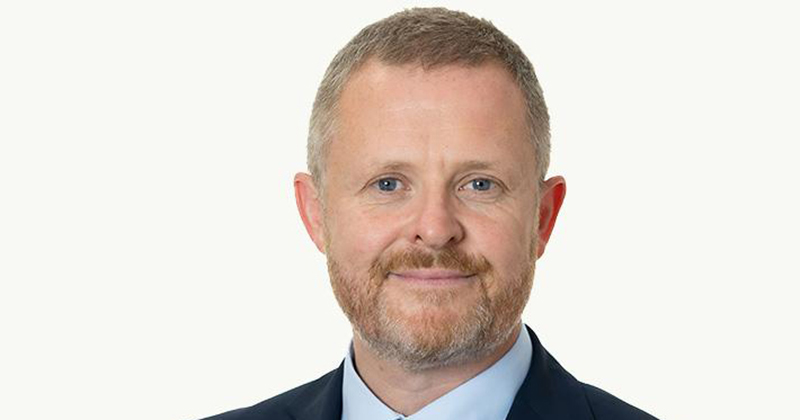Further, higher and adult education in Wales is set to be funded and regulated by a new statutory body with responsibility for all post-16 education and training, reigniting calls for a coherent tertiary system England.
The Commission for Tertiary Education and Research is a key plank of the Welsh government’s Tertiary Education and Research (Wales) Bill, which was introduced in the Senedd last Wednesday. It’ll be the first such combined further and higher education government agency in the UK that will include maintained school sixth forms.
Further education in Wales is currently funded directly by the Welsh government, with higher education funding being routed through the Higher Education Funding Council for Wales (HEFCW), which will be abolished.
Commission is ‘really good news’
The new commission will have wide-ranging powers, statutory duties and functions, ranging from instituting a register of tertiary education providers, establishing quality assurance frameworks as well as funding, either directly or through intermediaries like local authorities, post-16 education and training.
Yana Williams, chief executive of Coleg Cambria, told FE Week that the Welsh government’s plans for the new commission was “really good news” and would create “a much clearer system that would help learners make good choices and decisions”.
Colleges and universities in Scotland already share a funder, the Scottish Funding Council. However, that body does not fund post-16 provision in schools.

The English report of the Commission on the College of Future, which reported a year ago this month, recommended a “more networked college system” within a tertiary education structure to “develop a much more holistic and better coordinated approach”.
Collaboration between further and higher education providers in England has to date been delivered largely through government-led projects, such as Institutes of Technology and higher technical education reform. At the last reshuffle, the prime minister appointed two joint ministers for further and higher education in Alex Burghart and Michelle Donelan, leading to speculation of possible further convergence between FE and HE.
Ministers hope commission will grant ‘coherent system-wide view’
Establishing a “coherent” tertiary education authority in Wales was the cornerstone recommendation of an independent review of the oversight of post-compulsory education in Wales, led by Professor Ellen Hazelkorn in 2016.
Speaking to FE Week, Hazelkorn said she was “very excited to see that this had been taken on. The Welsh are seen as leaders in this space.”
Another key steer from the 2016 Hazelkorn Review was to introduce a “limited number of high-level strategic goals to guide the system which are sustainable over the longer term”.
Five years on, this recommendation also appears to have been adopted by Welsh ministers.
The new commission will have nine ‘broadly framed’ strategic duties, established in law, which, ministers say, will guide its work. These are:
- Promoting lifelong learning
- Promoting equality of opportunity
- Encouraging participation in tertiary education
- Promoting continuous improvement in tertiary education and research
- Promoting collaboration and coherence in tertiary education and research
- Contributing to a sustainable and innovative economy
- Promoting tertiary education through the medium of Welsh
- Promoting a civic mission
- Promoting a global outlook
These objectives “reflect the government’s long-term vision for the sector”, according to the Welsh government.
Jeremy Miles, the Welsh government’s minister for education and Welsh language, told FE Week that the Commission “will enable us to take a coherent system-wide view for the first time.
“We’re going to be bringing together the funding, the oversight and the regulation of further education, higher education, apprenticeships, community learning, research and innovation, as well as schools’ sixth forms through local authorities,” Miles told us.
‘May be those who want to protect their patch’

The commission will be led by a board with ministers making appointments of the chair, deputy chair and chief executive. Additional members will then be appointed by the commission, including non-voting learner representatives. The board will use the nine statutory duties to inform its strategic plan and report on progress to Welsh ministers and the Senedd annually.
One of those strategic duties, to “promote collaboration and coherence in tertiary education”, will require a culture shift, college leaders have said.
Simon Pirotte, principal and chief executive of Bridgend College and deputy chair of ColegauCymru, welcomed the introduction of the commission because it “puts the needs of learners before the needs of institutions”.
But, he said, “There may be those who are concerned about their own turf and may want to protect their patch.”
Hazelkorn shares similar concerns.
“For a long time, colleges and universities have been in competition, and I don’t think that’s particularly healthy.” When asked about how those at the top of the new commission worked together in the spirit of the new legislation, Hazelkorn suggests that the board should be chosen based on their expertise, rather than the constituency within the tertiary sector they work in.
“The model has often been that boards are made up of representatives of particular sectors or particular agencies. But in this case, you should be looking for people with certain competencies based on their experience, not who they represent. I think that’s an important change. The people on the board, as well as those working for the commission, should embrace and be committed to a tertiary perspective.” Hazelkorn told FE Week.
Wales inspection body Estyn will remain
Policy documents on the new commission reveal that despite falling under one authority, further and higher education providers would still operate under separate quality assurance approaches. Estyn will still be responsible for the inspection of further education; and an appointed quality body, like the Quality Assurance Agency, would monitor standards for higher education.
“I’m comfortable with that,” Jeremy Miles told FE Week. “This is not about creating a homogenous sector – quite the opposite,” he said. “We want to recognise and reflect the diversity that already exists but to make it easier for the different providers to work together in the interests of learners.”
On how he would personally judge the success of the new tertiary commission, the minister told us he would “want to see that our various institutions in the post-16 space are able to collaborate seamlessly with a flexible funding mechanism, and see that learners seamlessly navigate their way between school and the FE and HE provision.”
“There’s an awful lot of work to do,” the minister concludes.













Your thoughts